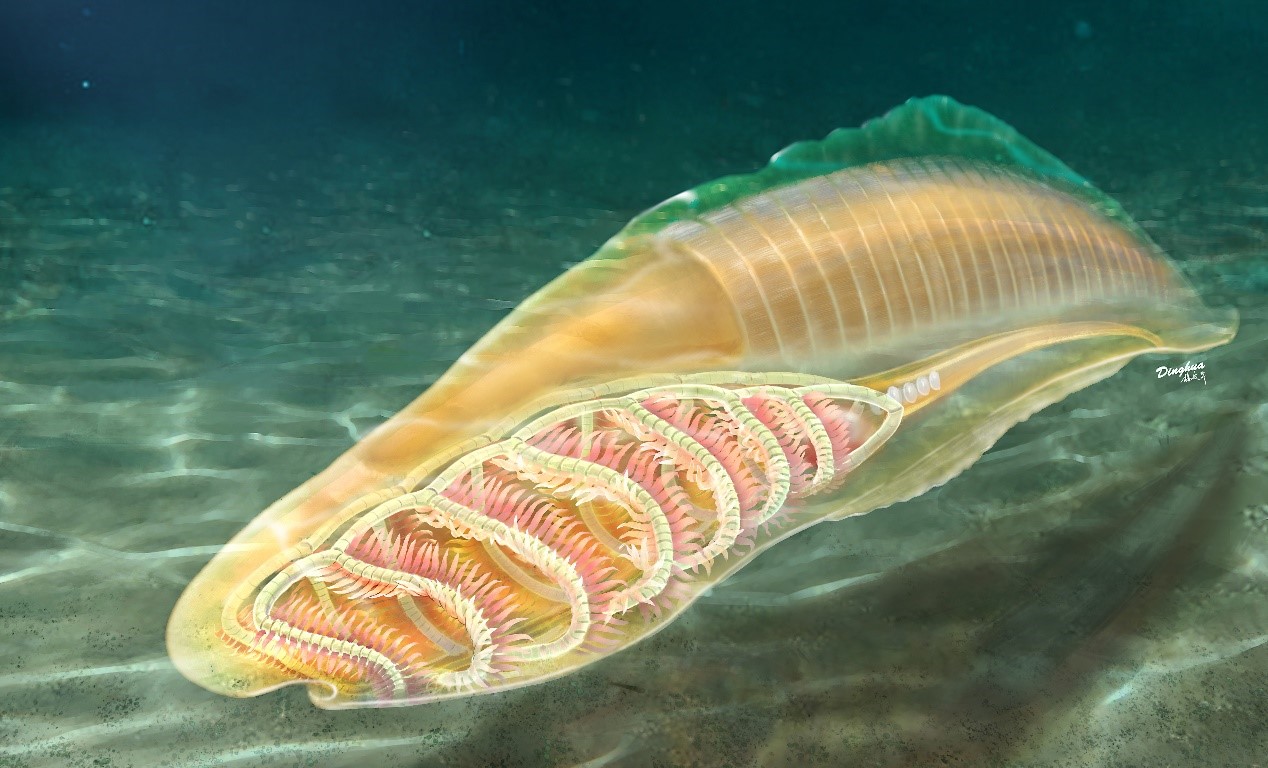Scientists have long puzzled over the gap in the fossil record that would explain the evolution of invertebrates to vertebrates. A research team from NIGPAS and Nanjing University has now conducted a study on yunnanozoans, extinct creatures from the early Cambrian (518 million years ago), and discovered evidence that they are the oldest known stem vertebrates. The term stem vertebrate refers to those vertebrates that are extinct, but very closely related to living vertebrates. The research team published their findings in Science on July 8, 2022.
The team applied X-ray microtomography, scanning electron microscopy, transmission electron microscopy, Raman spectrometry, Fourier-transform infrared spectroscopy, and energy-dispersive X-ray spectroscopy on the fossil specimens. Their study confirmed in multiple ways that yunnanozoans have cellular cartilages in the pharynx, a feature considered specific to vertebrates. The team’s findings support that yunnanozoans are stem vertebrates. The results of their study show that the yunnanozoans are the earliest and also the most primitive relatives of crown-group vertebrates.
Their research provided the team with new insights into the detailed structures of the pharyngeal arches. The new anatomical observations the team achieved in their study, support the evolutionary placement of yunnanozoans at the very basal part of the vertebrates.

Download:
